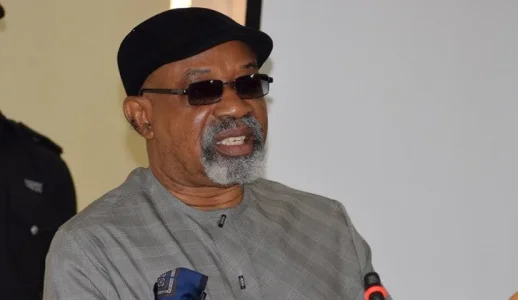
Federal Government's warning to workers: participation in strikes may result in jail time. The Attorney General cites legal mandates, and ongoing wage negotiations as reasons. Labor unions criticize, vow to proceed.
In a stern warning to workers planning to join the indefinite strike declared by labor unions, the Federal Government has announced that participants risk facing up to six months in jail. This declaration was made by the Attorney General of the Federation and Minister of Justice, Lateef Fagbemi (SAN), in a statement released on Sunday.
Fagbemi emphasized that Section 18 of the Trade Disputes Act mandates any worker employed in essential services to provide their employer with 15 days' notice before ceasing their services. Failure to comply with this provision could result in a fine or imprisonment for up to six months. The importance of this notice is further reinforced by Sections 41 and 42(1)(b) of the Act, which criminalize non-compliance.
The Attorney General noted that the Federal Government has been actively engaging stakeholders in a tripartite committee to determine a new national minimum wage. He pointed out that negotiations are ongoing and have not been concluded, making the planned strike a breach of both an existing order from the National Industrial Court and ongoing settlement efforts by mediators.
“You are further invited to recall the pendency of the interim injunctive order granted on 5th June 2023 in suit no: NICN/ABJ/158/2023 — FEDERAL GOVERNMENT OF NIGERIA & ANOR VV. NIGERIAN LABOUR CONGRESS & ANOR, which order restrained both Nigeria Labour Congress and Trade Union Congress from embarking on any industrial action or strike of any nature,” Fagbemi stated.
The Attorney General urged the labor unions to reconsider their declaration of a strike and to return to the negotiation table, highlighting the government's commitment to resolving matters through collective bargaining. He argued that continuing the strike would impose unnecessary hardships on the general populace and suggested that a more civil and patriotic approach would be to resume negotiations.
The Federal Government’s warning comes amid rising tensions and discontent among workers over issues such as wages and working conditions. Labor unions have been vocal about their demands for better pay and benefits, leading to the current standoff.
Reactions from major labor unions have been swift. The Nigeria Labour Congress (NLC) and the Trade Union Congress (TUC) have criticized the government's warning as an attempt to intimidate workers and stifle their rights. Union leaders have expressed their determination to proceed with the strike, arguing that the government has failed to address their concerns adequately.
Public opinion on the matter appears divided. Some citizens support the workers' right to strike and advocate for improved working conditions and wages, while others worry about the potential disruptions and economic impact of prolonged industrial action.




